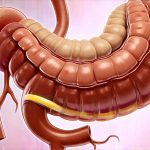Indigestion, often referred to as dyspepsia, is an incredibly common experience. Most people will encounter it at some point in their lives – that uncomfortable feeling of fullness, bloating, burning sensation in the stomach or upper abdomen, nausea, and sometimes even belching or gas. It’s rarely a sign of a serious underlying condition, but the discomfort can be significant enough to disrupt daily life. Understanding what’s actually happening inside your gut during indigestion isn’t always straightforward; it’s a complex interplay of physiological processes gone slightly awry. This article will delve into the mechanics of indigestion, exploring the various stages and factors that contribute to this widespread issue, aiming to provide insight into how our digestive system behaves when things aren’t quite running smoothly.
It’s important to distinguish between occasional indigestion and chronic dyspepsia. The former is usually triggered by something specific – a large meal, spicy food, stress, or perhaps a new medication. It tends to resolve relatively quickly without intervention. Chronic dyspepsia, on the other hand, persists for weeks or months and may require medical evaluation to rule out underlying causes or manage symptoms effectively. While we will cover general processes applicable to both, this exploration focuses more on understanding the mechanisms of indigestion rather than diagnosing or treating specific conditions. It’s about appreciating the delicate balance within our digestive system and recognizing how easily it can be disrupted. Understanding common first steps during investigations can also be helpful.
The Digestive Process & Where Things Can Go Wrong
The journey of food through your gut is a remarkably orchestrated process, starting from the moment you take a bite. Chewing breaks down food into smaller pieces, mixing it with saliva which contains enzymes initiating carbohydrate digestion. This partially digested food then travels down the esophagus to the stomach, where things become more complex. The stomach churns and mixes the food with strong acids and enzymes (like pepsin) to further break it down into a liquid called chyme. This process is carefully regulated; the stomach doesn’t just indiscriminately produce acid – hormone signals and nervous system control are essential for maintaining balance. Indigestion often arises when this regulation falters, or when the sheer volume of food overwhelms the system’s capacity. What happens to your esophagus during chronic heartburn can also play a role here.
A key component of healthy digestion is gastric emptying – the rate at which chyme moves from the stomach to the small intestine. This process is also precisely controlled. If the stomach empties too quickly, nutrients may not be adequately absorbed. But if it empties too slowly, pressure builds up in the stomach, leading to feelings of fullness, bloating, and nausea – hallmarks of indigestion. Several factors can impact gastric emptying rate: – The composition of the meal (fatty foods slow digestion) – Stress and anxiety – Certain medications – Underlying medical conditions. When gastric emptying is disrupted, it’s a prime contributor to those unpleasant indigestive symptoms.
Finally, the small intestine takes over, continuing the digestive process with enzymes from the pancreas and bile from the gallbladder. The majority of nutrient absorption happens here. Any undigested food then moves into the large intestine, where water is absorbed, and waste products are formed for elimination. Indigestion can affect any stage along this pathway; it’s not always just about what’s happening in the stomach. Issues with intestinal motility (the movement of food through the intestines) or imbalances in gut bacteria can also contribute to those uncomfortable symptoms. The gut is a complex ecosystem, and disruptions anywhere within it can ripple outwards, leading to indigestion. Understanding what your poop says about your gut bacteria can provide valuable insights.
Gastric Acid & Its Role in Indigestion
Gastric acid – primarily hydrochloric acid (HCl) – is essential for breaking down food, activating digestive enzymes, and protecting against harmful bacteria ingested with our meals. However, too much or improperly timed gastric acid production can be a significant factor in indigestion. The stomach has several protective mechanisms to prevent the acid from damaging its own lining, including a mucus layer that acts as a barrier. When this protective barrier is compromised – perhaps due to stress, certain medications (like NSAIDs), or infection with Helicobacter pylori – acid can irritate the stomach lining, leading to inflammation and discomfort.
It’s a common misconception that most indigestion is caused by “excess stomach acid.” In many cases, it’s actually related to issues like reduced lower esophageal sphincter (LES) tone. The LES is a muscular valve that prevents stomach acid from flowing back up into the esophagus – a condition known as acid reflux or heartburn. If the LES weakens or relaxes inappropriately, acid can escape and irritate the sensitive lining of the esophagus, causing a burning sensation. This often feels like indigestion, even though the problem isn’t necessarily an overproduction of acid itself.
Furthermore, some individuals experience functional dyspepsia, where no obvious physical abnormalities are found during investigation, but symptoms persist. In these cases, increased sensitivity to normal amounts of stomach acid or altered gastric perception (how the brain interprets signals from the stomach) may play a role. This highlights how much our subjective experience of indigestion can be influenced by factors beyond just the purely physiological. If you’re concerned about underlying issues, it’s important to know what your doctor checks during a physical gut exam.
The Impact of Gut Motility
Gut motility – the coordinated contractions that move food along the digestive tract – is crucial for efficient digestion and absorption. Indigestion often involves disruptions in gut motility, leading to either accelerated or delayed transit times. Delayed gastric emptying, as mentioned earlier, can cause feelings of fullness and bloating. Conversely, rapid transit through the small intestine may not allow enough time for adequate nutrient absorption, potentially leading to diarrhea or loose stools alongside indigestive symptoms.
The vagus nerve plays a central role in regulating gut motility. This major cranial nerve connects the brain to many internal organs, including the digestive system. Stress, anxiety, and even certain medications can affect vagal tone – the activity level of the vagus nerve. Reduced vagal tone often leads to decreased gut motility, contributing to constipation and bloating. Conversely, increased vagal tone might speed up digestion, causing diarrhea. Restoring balance in vagal tone is a key aspect of managing functional digestive disorders.
Finally, imbalances in the gut microbiome – the trillions of bacteria residing in our intestines – can also impact gut motility. Certain bacterial species produce gases during fermentation of undigested carbohydrates, contributing to bloating and discomfort. Others influence intestinal muscle contractions directly. A healthy, diverse microbiome is therefore essential for optimal gut function and preventing indigestion. Probiotics (live beneficial bacteria) and prebiotics (foods that feed good bacteria) can help support a balanced microbiome, although their effect on individual experiences of indigestion varies considerably. Building confidence in your gut through repeat testing can also be beneficial for long-term management.
Stress & The Gut-Brain Connection
The link between our brain and gut – often called the “gut-brain axis” – is incredibly strong. Stress and anxiety are well-known triggers for indigestion, but the mechanisms behind this connection are complex. When we experience stress, our bodies release hormones like cortisol, which can directly impact digestive processes. Cortisol can alter gastric emptying rate, increase intestinal permeability (“leaky gut”), and even influence the composition of the gut microbiome.
Stress also affects the nervous system’s control over digestion. The sympathetic nervous system (responsible for “fight or flight” response) tends to inhibit digestive activity, while the parasympathetic nervous system (“rest and digest”) promotes it. Chronic stress keeps the sympathetic nervous system activated, suppressing digestion and leading to symptoms like bloating, constipation, and abdominal pain.
Furthermore, our perception of digestive sensations is heavily influenced by our emotional state. Stress can amplify the feeling of discomfort, making even mild indigestion feel more severe. This explains why some people experience significantly worse indigestion during periods of high stress or anxiety. Techniques for managing stress – such as mindfulness meditation, deep breathing exercises, and regular physical activity – are therefore important tools for mitigating indigestive symptoms. It’s vital to remember that addressing the emotional component can be just as important as focusing on dietary changes or medication. Understanding what your gut tests say about your immune system may provide additional insight into these connections.


















